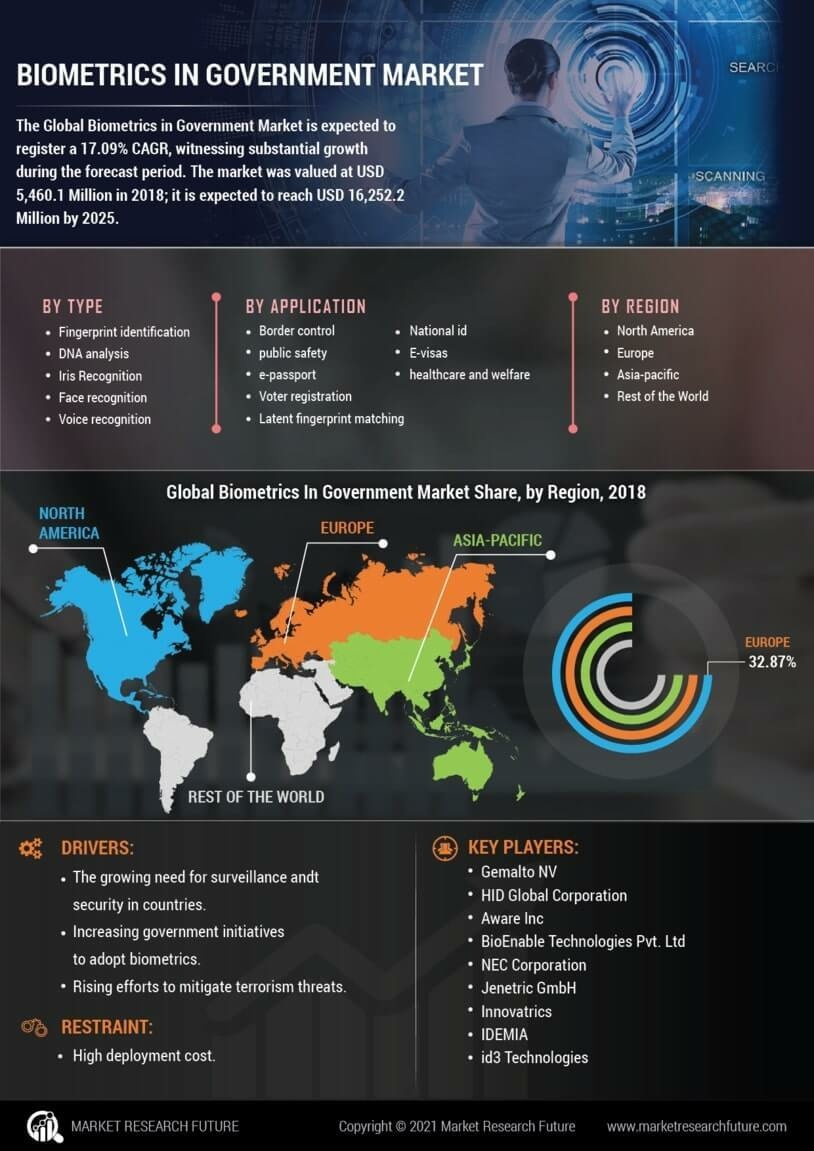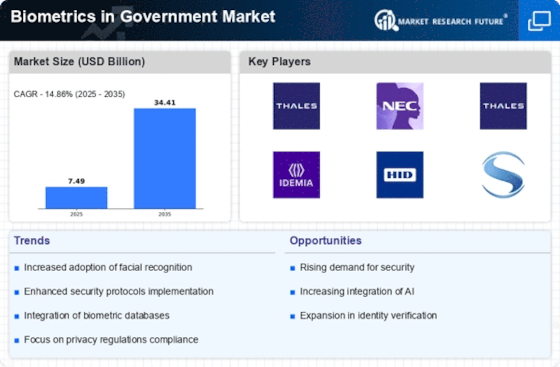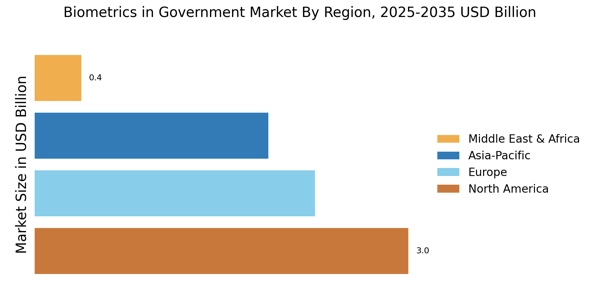May 2021, HID Global Corporation today announced a collaboration with Paravision, a leading provider of advanced facial recognition technology. HID will invest in Paravision to create biometric solutions based on facial recognition algorithms. This will allow the organization to extend its client base and go deeper into the market.
March 2021, Thales Group, in conjunction with Inetum, the European leader in digital services and solutions, installed more than 45 Automatic Border Control gates at Valencia and Bilbao airports, utilizing facial recognition and automatic document verifications. It was in charge of identification verification as well as smart access control. The corporation will use this to support the work of the National Police and AENA in border management. As a result, the company's brand image will increase in the international market.
March 2019, INNOVATRICS has released a new product, smart face 3.0, for use in security, retail consumer analysis, and attendance systems.
May 2024, To streamline health services to its most mobile population, Thailand introduced a scheme in May 2024 aimed at collecting the iris and face biometrics of people from Myanmar. However, it remains controversial due to the politics involved and power dynamics as well since human rights activists argue that it infringes on privacy rights. As part of this initiative, 10,000 Myanmar nationals have already given their biometric data, according to Radio Free Asia.
The campaign is spearheaded by the Thai Department of Disease Control with the aim of having a better understanding of the allocation and administration of vaccine doses for migrants. Thus far, they hope to gather one million profiles with iris and facial recognition details tied to personal information. Currently, scanning is restricted to several selected provinces because they are home to large communities from Myanmar, among other reasons. Nonetheless, the government plans to expand this data-gathering exercise.
January 2024, Indian security agencies became worried about possible massive data leakage through Chinese-manufactured microchips and equipment used in Biometric Attendance Systems (BAS) installed in central and state government offices, including sensitive departments. According to intelligence sources that carried out investigations into these matters, there were close to twelve Indian companies that supplied these attendance systems and made use of parts originating from China. The firms are being investigated as per reports to see whether any such leaks occurred or not.
It is suspected that around 7,500 centrals as well as state government organizations, where nearly 900 thousand central plus 1.7 million state employees work, may have been using over eighty thousand such suspicious biometric attendance systems, including major central plus state governmental establishments like military offices and defense personnel offices.
According to an article published by The Economic Times (ET), India will launch a biometrics-based system for international passengers traveling through its airports, which will fast-track immigration checks, thus positioning the country’s airports as global transit hubs. This policy, though it needs Cabinet consent, looks forward to aligning laws, reducing security and immigration bottlenecks, giving international flying rights, and developing the necessary infrastructure for streamlining airports, including the one in the National Capital as competitive transit hubs.
These biometrics systems will involve automated immigration clearances that would negate the need for physical verification of passports besides facial recognition or fingerprints to confirm passenger identities.
















